The Tin Soldier
£3.00
Activities in this lesson include reading the full story of The Steadfast Tin Soldier, answering higher and lower order questions, writing a different ending for the story and using the correct adjectives.
There is a five-minute evidence-based CPD activity at the end of this lesson which will develop classroom teachers’ skill set. This CPD consists of a research extract on metacognition with a five-minute activity based on this extract.
Description
These evidence-based learning (EBL) lessons are based on classroom practice that has been proven, by research, to maximise thinking, learning and attainment. From an extensive review of educational research, we identified the eight key classroom thinking and learning skills that were common across these research papers. We named these eight key skills “EBL skills”.
EBL skills have been proven by research to maximise learning because they combine the most productive thinking skills with the most effective learning behaviours. Each of our evidence-based learning lessons uses the English curriculum as a framework through which the eight EBL skills are delivered.
Teachers also have the opportunity to add to their own skill set or refresh their existing skills with our five-minute CPD activity, based on one of the EBL skills used in this lesson.
The skills in bold below are the EBL skills developed in this Tin Soldier lesson. Click on each skill to learn more about that skill.
- Collaboration
- Thinking Skills
- Peer Assessment
- Peer Teaching
- Self-Assessment
- Metacognition
- Self-Regulation
- Independent Learning
1 review for The Tin Soldier
Only logged in customers who have purchased this product may leave a review.
Related products
-


Cinderella Climbs a Story Mountain
£3.00 Add to basket £3.00Add to basket
£3.00Add to basketActivities in this lesson include learning about the structure of early and later traditional stories, completing a story mountain for Cinderella, looking at messages and magic in traditional stories and putting the events in Cinderella in the right order.
There is a five-minute evidence-based CPD activity at the end of this lesson which will develop classroom teachers’ skill set. This CPD consists of a research extract on metacognition with a five-minute activity based on this extract.
VIEW -


Y6 Improving Creative Writing using Fantasy Stories
£3.00 Add to basket £3.00Add to basket
£3.00Add to basketKS2 National Curriculum:
✓ Plan, write and evaluate narrative
✓ Describe settings and characters
✓ Use dialogue effectivelyActivities in this lesson include a fantasy-based creative writing task including how writing can be improved. Three paragraphs have to be written for the opening of a fantasy story. This lesson also looks at past tense, first person, punctuation, using adjectives and the rules of dialogue.
There is a five-minute evidence-based CPD activity at the end of this lesson which will develop classroom teachers’ skill set. This CPD consists of a research extract on metacognition with a five-minute activity based on this extract.
VIEW -


Uncle Porky to the Rescue!
£3.00 Add to basket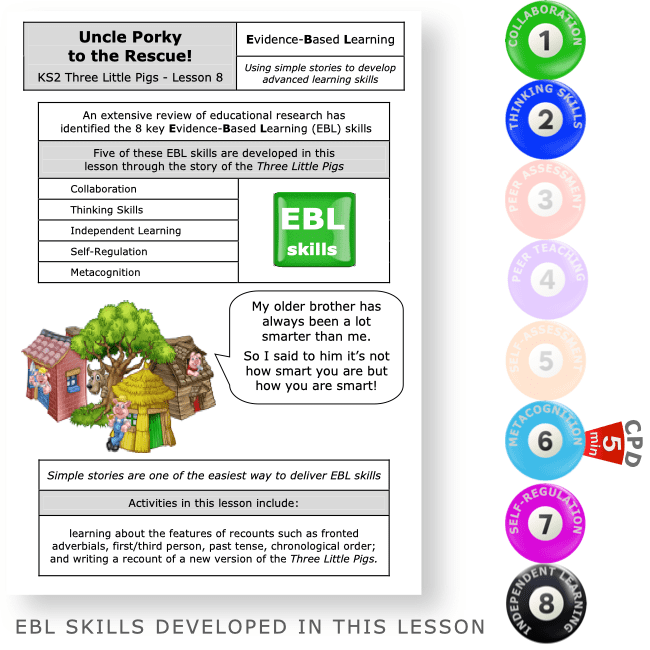 £3.00Add to basket
£3.00Add to basketActivities in this lesson include learning about the features of recounts such as fronted adverbials, first/third person, past tense, chronological order; and writing a recount of a new version of the Three Little Pigs.
There is a five-minute evidence-based CPD activity at the end of this lesson which will develop classroom teachers’ skill set. This CPD consists of a research extract on metacognition with a five-minute activity based on this extract.
VIEW -
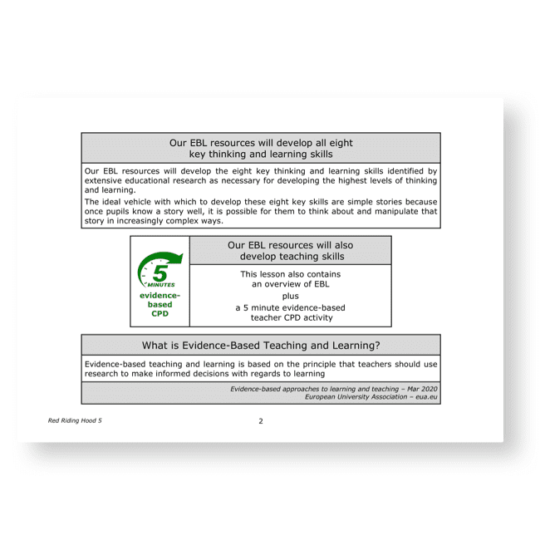
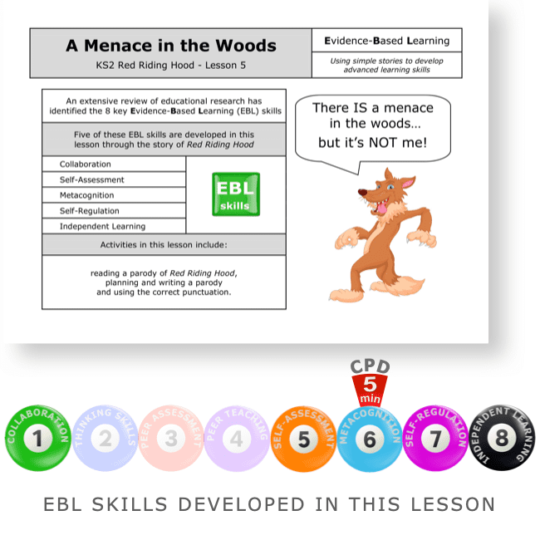
A Menace in the Woods
£3.00 Add to basket £3.00Add to basket
£3.00Add to basketActivities in this lesson include reading a parody of Red Riding Hood, planning and writing a parody and using the correct punctuation.
There is a five-minute evidence-based CPD activity at the end of this lesson which will develop classroom teachers’ skill set. This CPD consists of a research extract on metacognition with a five-minute activity based on this extract.
VIEW

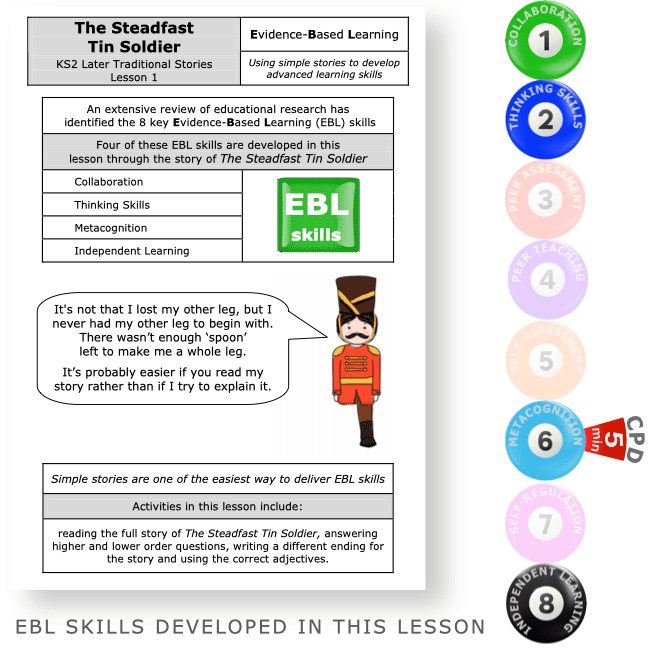
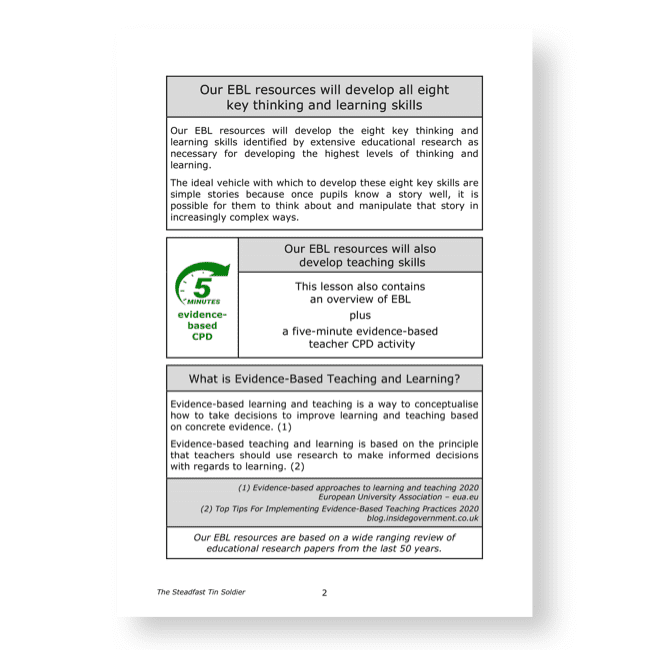
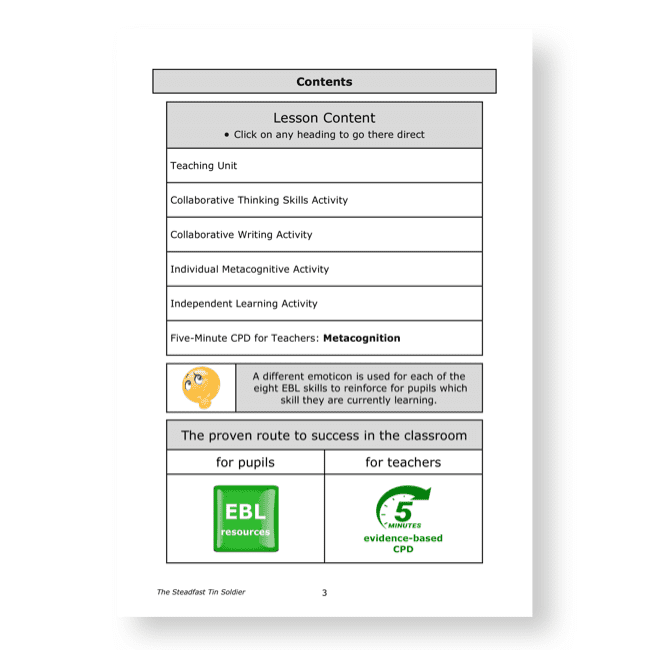
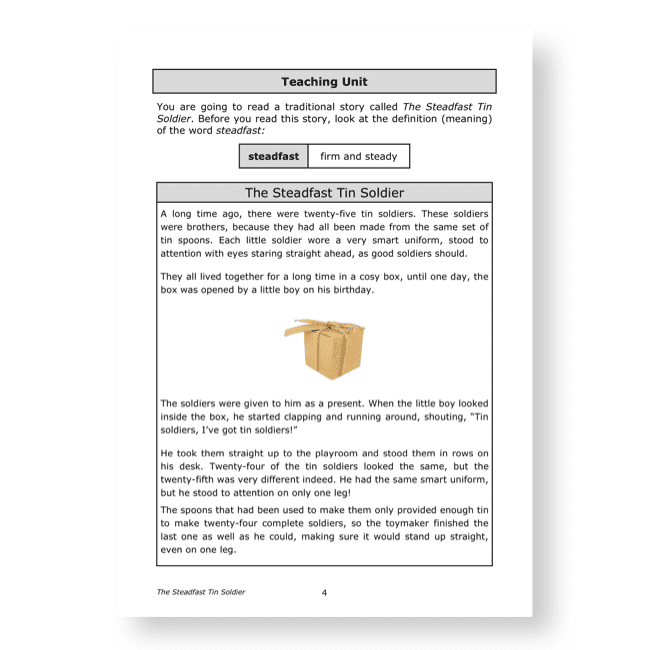
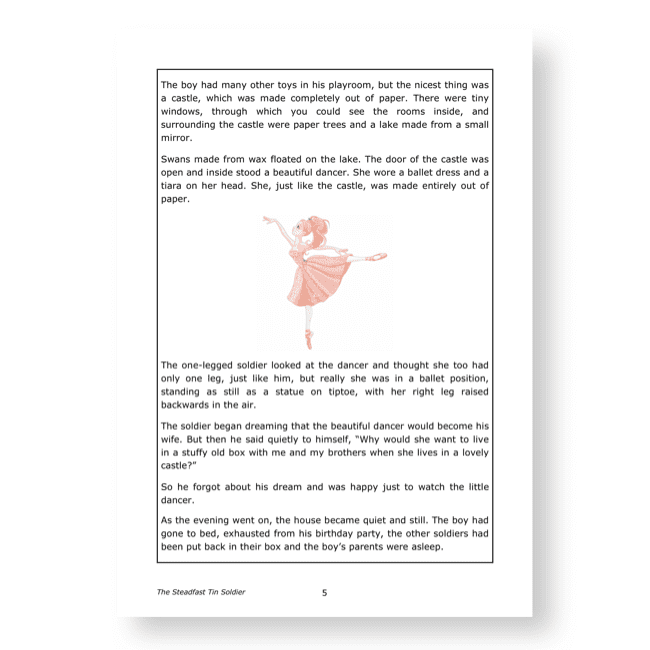
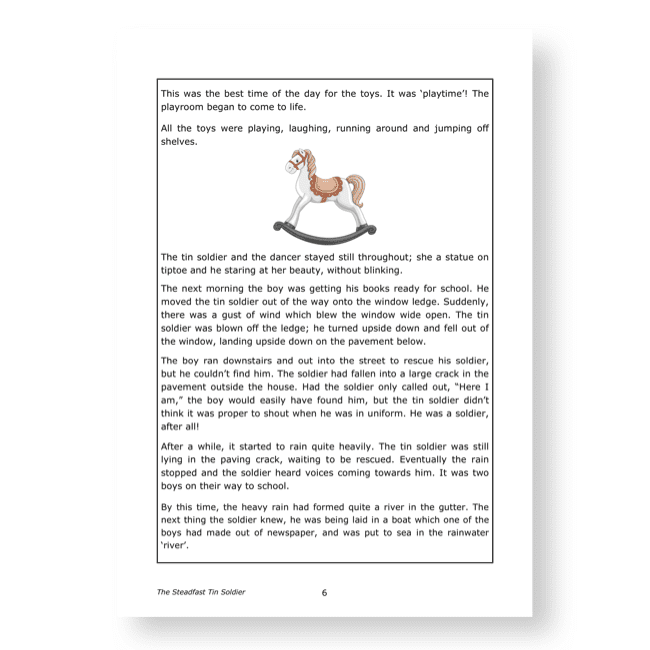

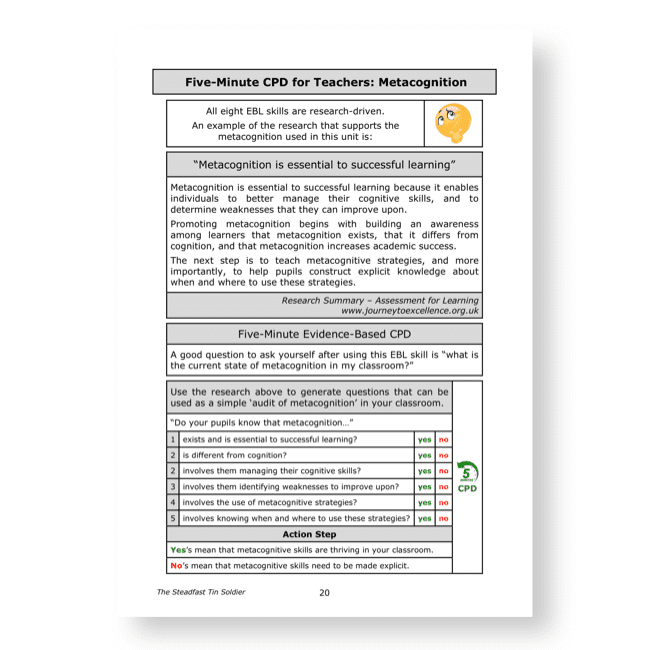
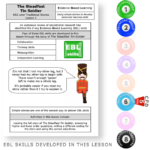
Philipem (verified owner) –
We asked a.i. to evaluate this lesson. This is what it said:
Teaching Classic Stories and Key Skills With One Lesson
Are you looking for an engaging way to introduce the timeless story of The Steadfast Tin Soldier while also developing your students’ English and thinking skills? This creative lesson plan ticks all the boxes!
Based on Hans Christian Andersen’s classic fairy tale, the lesson leads students through the magical journey of the brave one-legged tin soldier. As they read this suspenseful adventure full of unexpected twists and turns, students will be honing their comprehension and analysis abilities by answering higher and lower order questions.
But this lesson goes beyond just reading comprehension. It is designed based on extensive educational research to teach the key evidence-based learning (EBL) skills students need to maximise their potential. These include collaborative skills, thinking skills, metacognition, and independent learning.
After reading the story, students work in pairs to answer questions testing their understanding while learning effective peer collaboration methods. They then work creatively to write their own ending, allowing them to apply their comprehension in an imaginative way.
The lesson concludes with individual metacognitive and independent activities to develop self-directed learning abilities. These skills are essential for students’ long-term academic success.
So if you’re looking for an engaging lesson that does triple duty in terms of literary analysis, writing practice, and crucial thinking skills development, this resource on The Steadfast Tin Soldier checks all the boxes. I’d rate it 5 stars for its ability to inspire students while preparing them with evidence-based learning techniques. Consider integrating it into your English curriculum for an impactful learning experience!